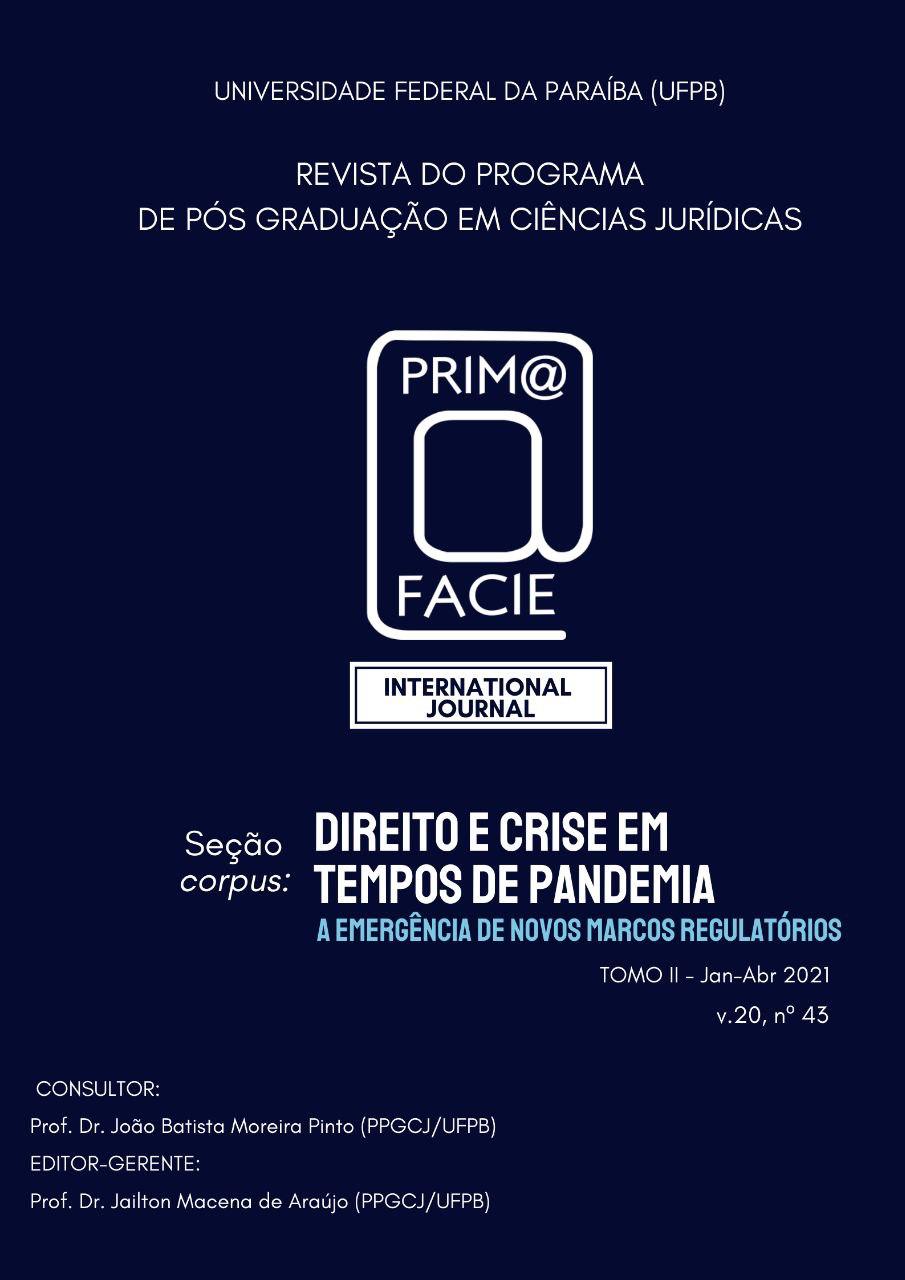The State Of Public Calamity While Possibility Of Implicit Circumstancial Limit Of Constitutional Amendment
DOI:
https://doi.org/10.22478/ufpb.1678-2593.2021v20n43.54235Keywords:
Public calamity - Constitutional amendment - Implicit circumstantial limitAbstract
The state of Public Calamity was decreed for the first time, in Brazil, at the national level, in March 2020, due to the proliferation of the virus that causes Covid-19. Social dynamics are sensibly affected, given the restrictions established by the Public Power at the federal, state and municipal levels. In order to regulate the new reality, there is ample normative production, such as laws, decrees and, even, constitutional amendment, as well as the judicialization of issues pertinent to facing this Public Health emergency, establishing an institutional crisis. In this context, it was asked about the possibility of recognizing an implicit circumstantial limit to the power to amend the Constitution, especially in cases of decree of the state of public calamity. The article used the deductive approach method, comparative, bibliographic and documentary procedures, constituting a study in the constitutional area, based on normative acts, jurisprudence and doctrines. It started with the institutes of the constituting and constituted powers, showing their expressed and implicit limits as effective instruments in the maintenance of a constitutional order that corresponds to the expectations of popular sovereignty, to conclude by the possibility of the implicit circumstantial irreformability of the Federal Constitution under the state of São Paulo. Public calamity.
Downloads
Downloads
Published
How to Cite
Issue
Section
License
Copyright (c) 2021 A Prim@ Facie detém direitos exclusivos de publicação e distribuição sob concessão absolutamente franca da parte do autor, ou autores.

This work is licensed under a Creative Commons Attribution-NonCommercial-NoDerivatives 4.0 International License.
Os autores estão cientes de que transferem seus direitos de publicação e distribuição à revista Prima Facie. Os autores autorizam o uso do trabalho para fins não-comerciais, incluindo direito de enviar o trabalho em bases de dados de Acesso Livre. As provas finais poderão não ser enviadas aos autores antes da publicação, seguindo a revista seu padrão técnico explicitado nas suas normas e nos formatos praticados em acordo com a CAPES e com padrões de excelência adotados. As opiniões emitidas pelos autores são de sua exclusiva responsabilidade não sendo a revista solidária da livre opinião exposta por eles.

